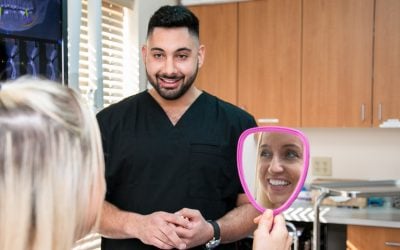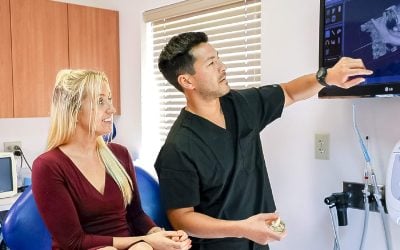At our Quincy, MA, office, our team of oral surgeons is well versed in the practice of surgical repair following any instances of oral trauma or irregularities/injuries impacting the jaw function. When it comes to oral trauma, our surgeons have the experience and skill necessary to provide patients with the highest level of care possible. This includes ensuring that patients are tended to both emotionally and physically to facilitate their recovery. In terms of jaw surgery, we are able to provide both corrective and reconstructive procedures as needed in order to help patients achieve optimal function, health, and aesthetics.
Overall, we recognize that requiring oral surgery can be a very stressful time for our patients. As such, our goal is to provide the personalized care and attention that each patient needs and deserves in order to provide the best results possible.
If you have suffered from oral trauma or need jaw surgery, we encourage you to call our office to schedule a consultation with one of our skilled surgeons. We look forward to speaking with you.
Why Visit an Oral Surgeon for Facial Trauma/Injury?
As oral surgeons, our job goes beyond the science of surgical practice and extends to the realms of emotional support and patient care. In the event of oral trauma, for example, we are not only responsible for performing a surgical procedure but also for providing comfort and reassurance to our patients. This is why communication skills are just as important as surgical skills for our profession; we always take time to explain procedures clearly and concisely, answer any questions that patients may have, and provide support both before and after surgery.
Additionally, we recognize that oral surgery can be a very emotional process for our patients – especially following a traumatic injury. Generally, people are anxious about undergoing any kind of surgery, but this anxiety can be compounded when the procedure is being performed on such a sensitive area. It is our job to make sure that patients feel as comfortable as possible, both before and after their operations. This means taking the time to listen to concerns, answering questions, and providing support and reassurance every step of the way.
At MassOMS, we are committed to providing the highest level of patient care possible. We understand that surgery following oral trauma or injury can be a daunting experience, but we are here to help make it as smooth and stress-free as possible.
Examples of Oral Trauma
Oral trauma can occur for a variety of reasons, such as car accidents, sports injuries, or falls. There are many types of trauma that can require oral surgery. Some common examples include:
- Broken bones in the face or jaw
- Severe tooth damage or loss
- Soft tissue injuries (such as lacerations)
If you have suffered any type of facial trauma, it is important to seek medical attention as soon as possible. Our oral surgeons can assess the extent of the damage and recommend the best course of treatment.
What is Jaw Surgery?
Jaw surgery, also known as orthognathic surgery, is a type of surgery that corrects irregularities in the jaw. These irregularities may occur due to irregular growth, injury, or congenital defects.
Recovery from surgery may take up to twelve weeks; during this time, patients may experience swelling, bruising, and discomfort in the jaw. Jaw surgery is a complex and delicate procedure, so it is important to ensure all post-operative instructions are followed closely.
Why is Jaw Surgery Needed?
Jaw surgery may be recommended for a variety of reasons to treat or correct different medical conditions or anomalies. Some of these conditions may affect your breathing, eating, or speaking. There are many types of jaw surgery that can be performed depending on the condition being treated. Some common reasons why you might need jaw surgery include:
- Opening the airway to treat sleep apnea
- Aligning the jaws to improve the function of the jaw or the appearance of the face
- Correcting a misaligned bite
- Amending a fractured jaw that doesn’t heal properly
- Removing tumors in the mouth or jaws
- Reconstructing the jaw following an injury

